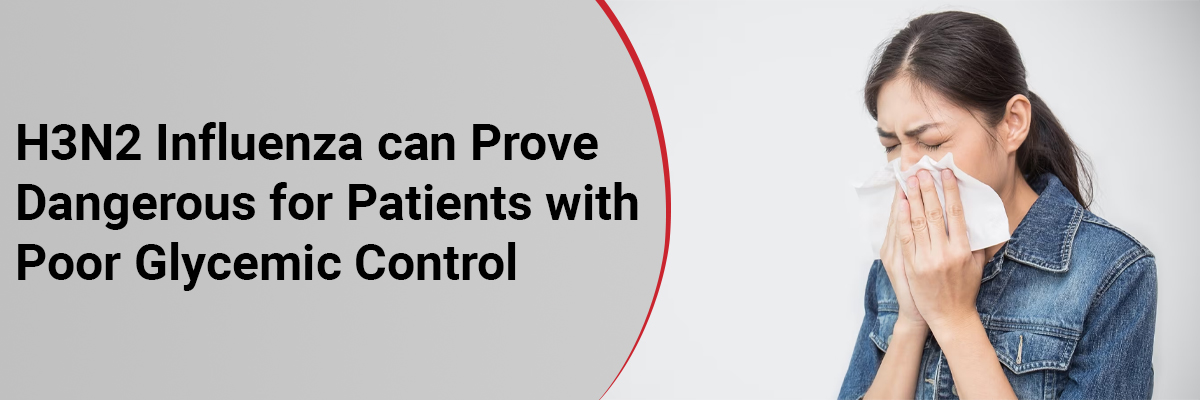
 IJCP Editorial Team
IJCP Editorial Team
H3N2 influenza can prove dangerous for patients with poor glycemic control
Recent times has evidenced a hike in H3N2 cases in India. The pathogen has spread across the subcontinent. Most patients visiting the out-patient department complain of cough and cold, sore throat, nasal obstruction, diarrhea, fever, malaise, and chills.
It is well known that individuals with diabetes are at a higher risk of contracting infections. Recent reports suggest that diabetic patients contracting H3N2 influenza harbor a greater risk of critical illness and hospitalization.
Chronic hyperglycemia damages blood vessels and nerves and impairs the respiratory system's efficacy in fighting infections. The National Library of Medicine reported that uncontrolled diabetes could heighten the risk of death due to influenza.
H3N2 virus – a subtype of influenza A, is known to cause respiratory illness in humans. A severe case can cause pneumonia and other fatal complications.
Prevention strategies for avoiding H3N2-related complications include:
• Flu vaccinations
• Glycemic control
• Hand hygiene
• Isolation and sanitization
• Hydration
• Diet and exercise
• Respiratory hygiene
• Early reporting, detection, and prompt treatment

IJCP Editorial Team
Comprising seasoned professionals and experts from the medical field, the IJCP editorial team is dedicated to delivering timely and accurate content and thriving to provide attention-grabbing information for the readers. What sets them apart are their diverse expertise, spanning academia, research, and clinical practice, and their dedication to upholding the highest standards of quality and integrity. With a wealth of experience and a commitment to excellence, the IJCP editorial team strives to provide valuable perspectives, the latest trends, and in-depth analyses across various medical domains, all in a way that keeps you interested and engaged.





















Please login to comment on this article